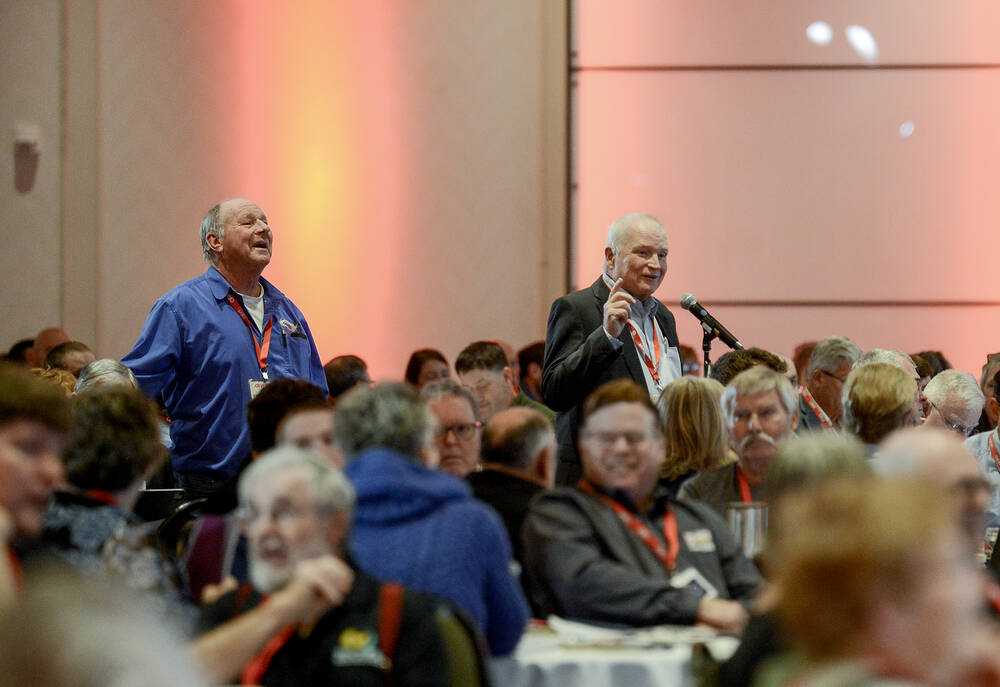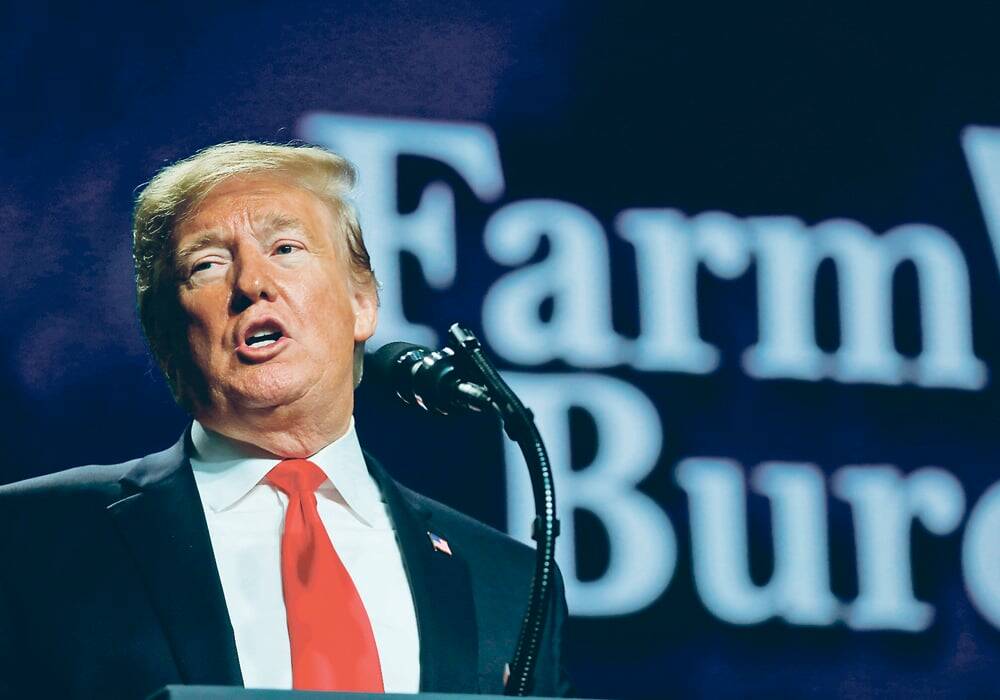OFA members call for proactive response to U.S. tariff threat

Thunderous applause supported a last-minute resolution at the Ontario Federation of Agriculture’s annual meeting and convention.
Read Also

A new era of trade policy
Canada’s agriculture sector will have to work much harder at persuading Americans that tariff-free trade with its northern neighbour is in their best interests. That was the consensus of panelists speaking during a Nov. 27 discussion hosted by the Canadian Agri-Food Policy Institute.
President-elect Donald Trump’s Nov. 25 threat to impose a 25 percent tariff on Canadian goods entering the United States triggered the resolution put forward by past OFA and Canadian Federation of Agriculture president Ron Bonnett.
Why it matters: The tariff that President-elect Donald Trump promises to levy against Canada could have far-reaching implications for Ontario’s agriculture sector.
The resolution asked the OFA board to work with the Canadian government to negotiate an exemption on agricultural products, request a targeted list of imported U.S. products for retaliatory tariff action and push for continued adherence to current Canada–United States–Mexico Agreement trading rules.
Additionally, it suggested exploring opportunities for Canada to become the preferred supplier of agricultural products to countries affected by U.S. tariffs.
“Twenty-five percent is pretty alarming, I’ll admit,” said CFA president Keith Currie in an interview. “I think Trump realizes the importance of trade with Canada. We are their biggest trading partner, not just us being theirs.”
Bonnett’s resolution was strategically smart, effectively worded and easily supported by 99 per cent of the OFA members, said Currie. It reflected Bonnett’s prowess as a farm politician, and Currie suspects other agricultural organizations will mirror the resolution at their own general meetings in the new year.
“Ron recognized this as an opportunity as a delegate to get out in front and put a good resolution forward, instead of a reactive resolution that could be inconsequential, ineffective or wrong.”
OFA president Drew Spoelstra said the board will address the resolution at December’s meeting and will work with the CFA to advance the issue.
Currie has contacted Deputy Prime-Minister Chrystia Freeland’s office to arrange a discussion and met with Mexican officials Nov. 28 on unrelated business that was likely to include discussion on the proposed tariff.
He suspects Trump’s tariff threat is a tactical move, given that CUSMA will open for review in late 2025 and early 2026. In talks with the federal government and its negotiators, Currie said CFA’s stance has been consistent.
“If there are issues that need to be cleaned up and fixed within the agreement, then go ahead,” he said. “This is a review. The agreement is in place until 2040. Keep it that way. Don’t renegotiate.”
During the United Nations Climate Change COP29 conference in Baku, Azerbaijan, in mid-November, before Trump announced the tariff, Currie urged Canada’s head negotiator to use the “do no harm” method but perhaps be more guarded than before.
“I think it’s a bit of a rallying cry for us (agriculture organizations) to get together and be more forceful on the current government, to make sure that they’re looking after our best interest,” said Currie. “And quite frankly, the interest of Canadians, too.”
Following the First Ministers’ meeting with fellow premiers and Prime Minister Justin Trudeau on Nov. 27, Ontario Premier Doug Ford said in a release that he urges Canada to negotiate a bilateral trade agreement directly with the U.S.
Ford said Ontario has been pushing the federal government for months to show it is responsive to U.S. security and economic concerns.
“I stressed that the federal government has been slow to react and is stuck on its back foot,” said Ford. “I expressed my hope that this evening’s meeting is the start of a more proactive approach from the federal government, including by showing that it takes the security of our border seriously … or risk the economic chaos of Trump tariffs.”
Ford said Ontario is uniquely positioned to help America bring jobs home and will continue to work with U.S. lawmakers “as it decouples from China.”
Source: Farmtario.com

